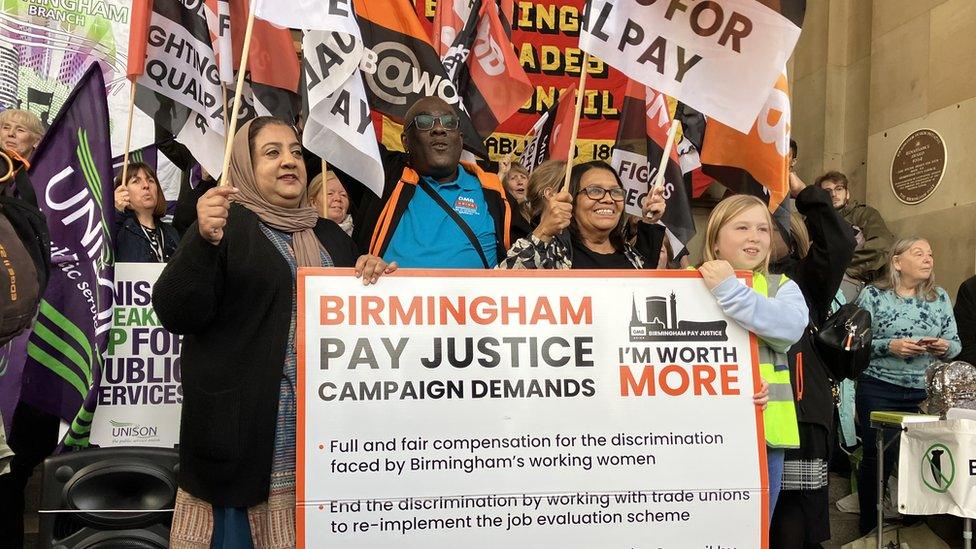'We feel like it's us repaying Birmingham's debt'
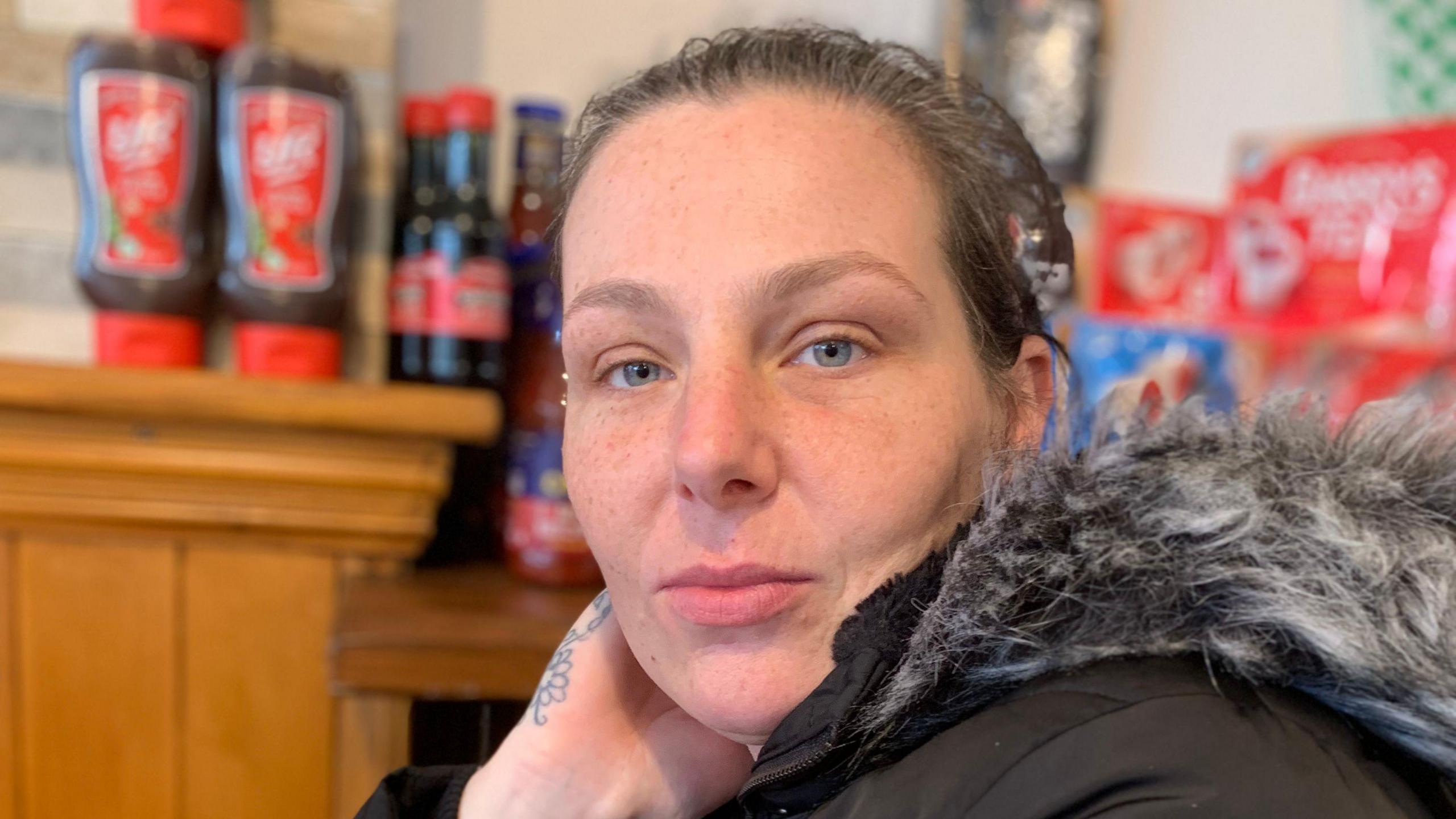
'There’s nothing here for anybody' says Laura Girling
- Published
Residents of a Birmingham housing estate say huge cuts to offset the council's financial crisis risk their future being taken away.
There is pessimism in Druids Heath, and a sense from some that where they live will now be left further behind.
The old Baverstock Academy school site is already abandoned scrubland, bordered by walls plastered in graffiti. It’s a disheartening view for those living nearby, not to mention costly for families funding bus passes to get children to class elsewhere.
The city council’s vast rescue plan to make savings of more than £300m and push up tax by 21% has done little to fuel hope.
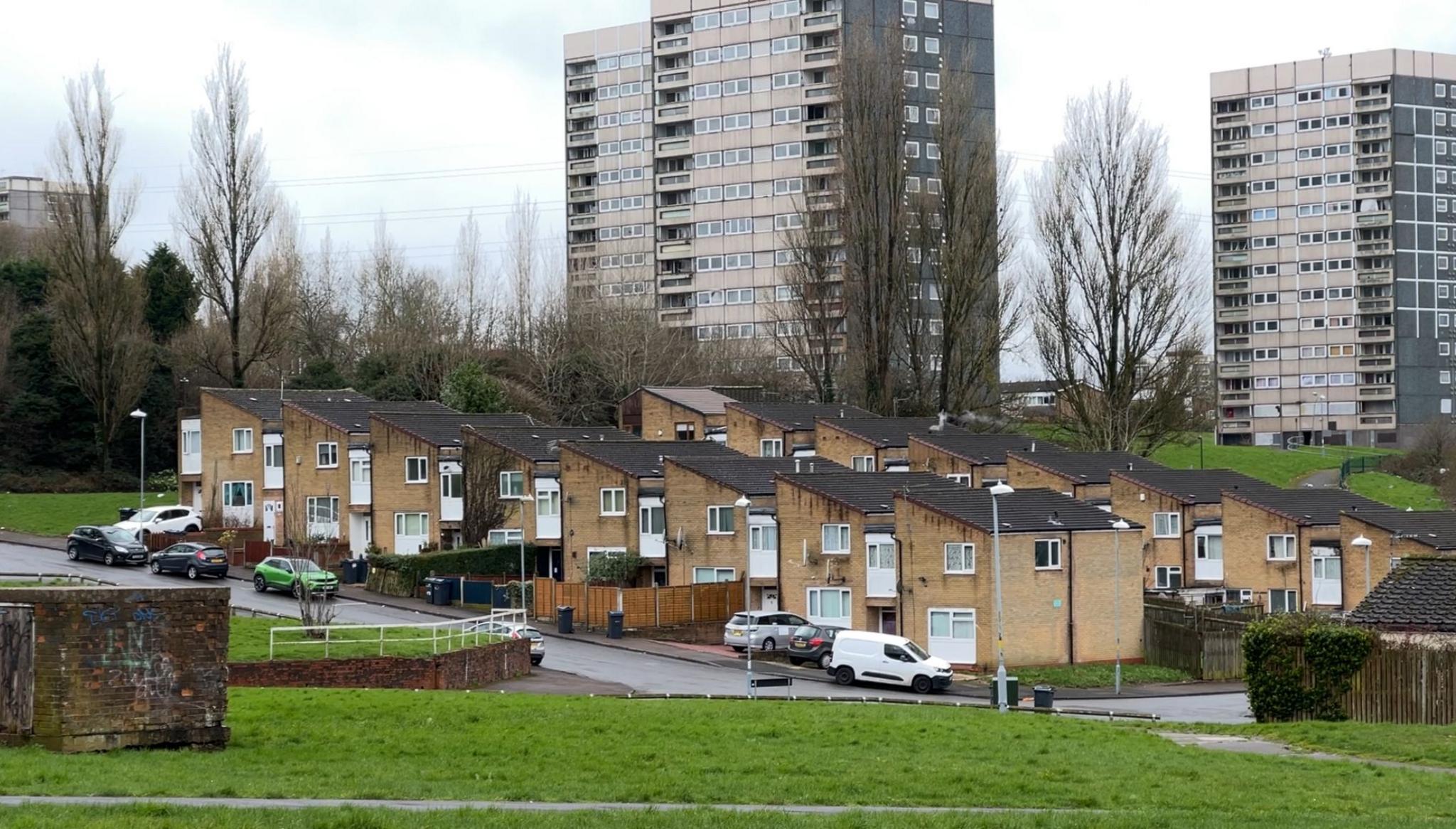
Those living in Druids Heath say they are worried about an increase in crime due to the rising cost of living
Four years after the school’s demolition, the land is perhaps symbolic of a wider malaise – at least when it comes to regeneration.
Hundreds of new social homes, and the demolition of six 1960s tower blocks, are all in the works, at least somewhere. Cabinet approval was granted as far back as 2018 and there are few spades in the ground, although a "masterplan" is being prepared.
But everything has different context since the council formally announced last year it could no longer balance its budget due to a gigantic financial black hole.
To claw its way back from effective bankruptcy, the authority has had to overhaul what it offers, while charging residents more.
“A lot of people see it as we’re repaying their debt," said Laura Girling, an ex-pupil at Baverstock Academy, who has a child with special educational needs.
"[Residents] need stuff round here, there’s nothing here for anybody."
Maypole Youth Club is well-regarded and has given young people in Druids Heath a place to socialise, helping to deter them from crime and anti-social behaviour. But there are concerns it may have to close as part of cuts.
Kath Coogan, a café owner who volunteers there and organises games nights for young people, said: “There are loads of kids of all ages here. We don’t want them on the streets. It’s scary on the streets and shutting the youth centre would be really bad for everyone."
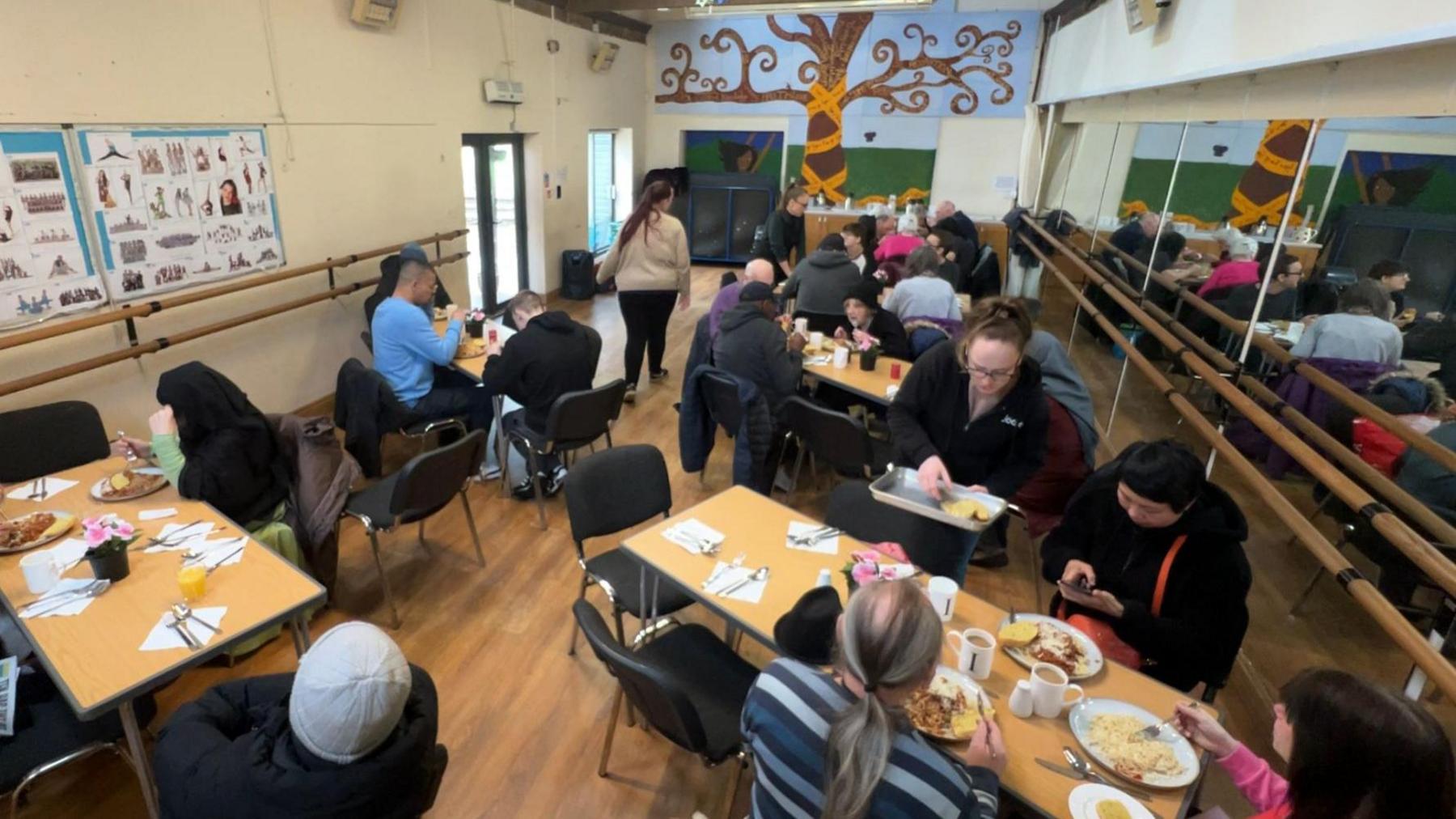
At the community centre, hot meals are offered on Fridays and offers residents a chance to socialise
In the late 1970s, a farmhouse near Bells Lane was left empty and vandalised, creating a blot on the landscape.
But the community was not prepared to let that persist. A petition, followed by a rally, and eventual political support, gave the building a new life as the thriving Bells Farm Community Centre, run in partnership with a community association.
But, perhaps inevitably, there are concerns now about its future too. A full-circle moment.
It is home to a foodbank managed by the Spearhead Trust, which has seen a spike in demand since Birmingham’s budget proposals were first announced.
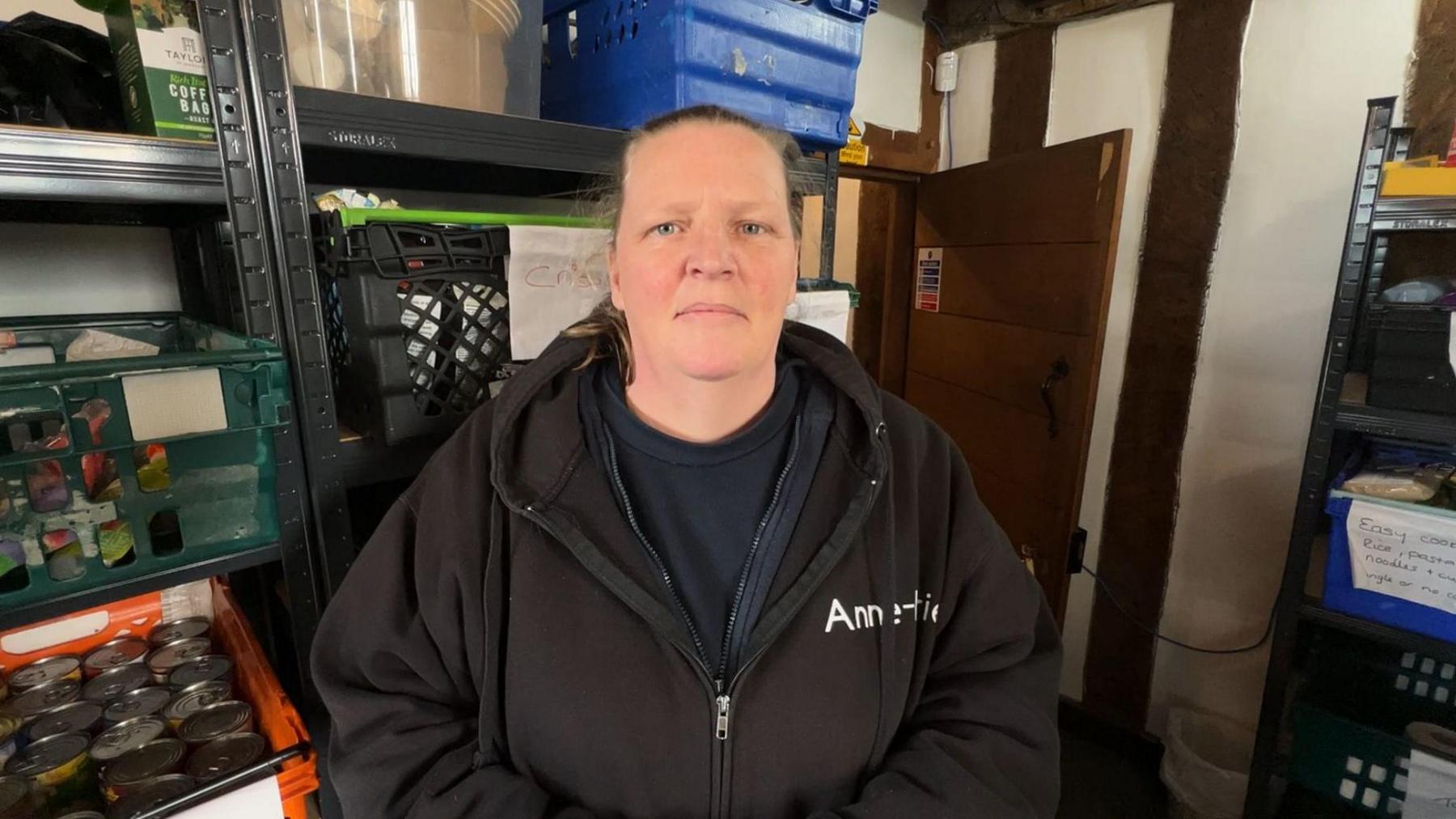
Anne-Marie Alder says the cuts will hit single families the hardest
“Many of our clients live in high rises and haven’t got the luxury of turning on a gas cooker," said the Spearhead Trust's Anne-Marie Alder. "Cooking and heating is expensive.
“It’s hard for us to sustain the amount of food we have in our stocks and that’s going to become even more difficult.”
According to the council, a quarter of Birmingham’s 461,000 households are eligible for financial support, with 75,000 paying no council tax at all. The Discretionary Hardship Fund is to also remain in place “to provide targeted support to the households in most need”.
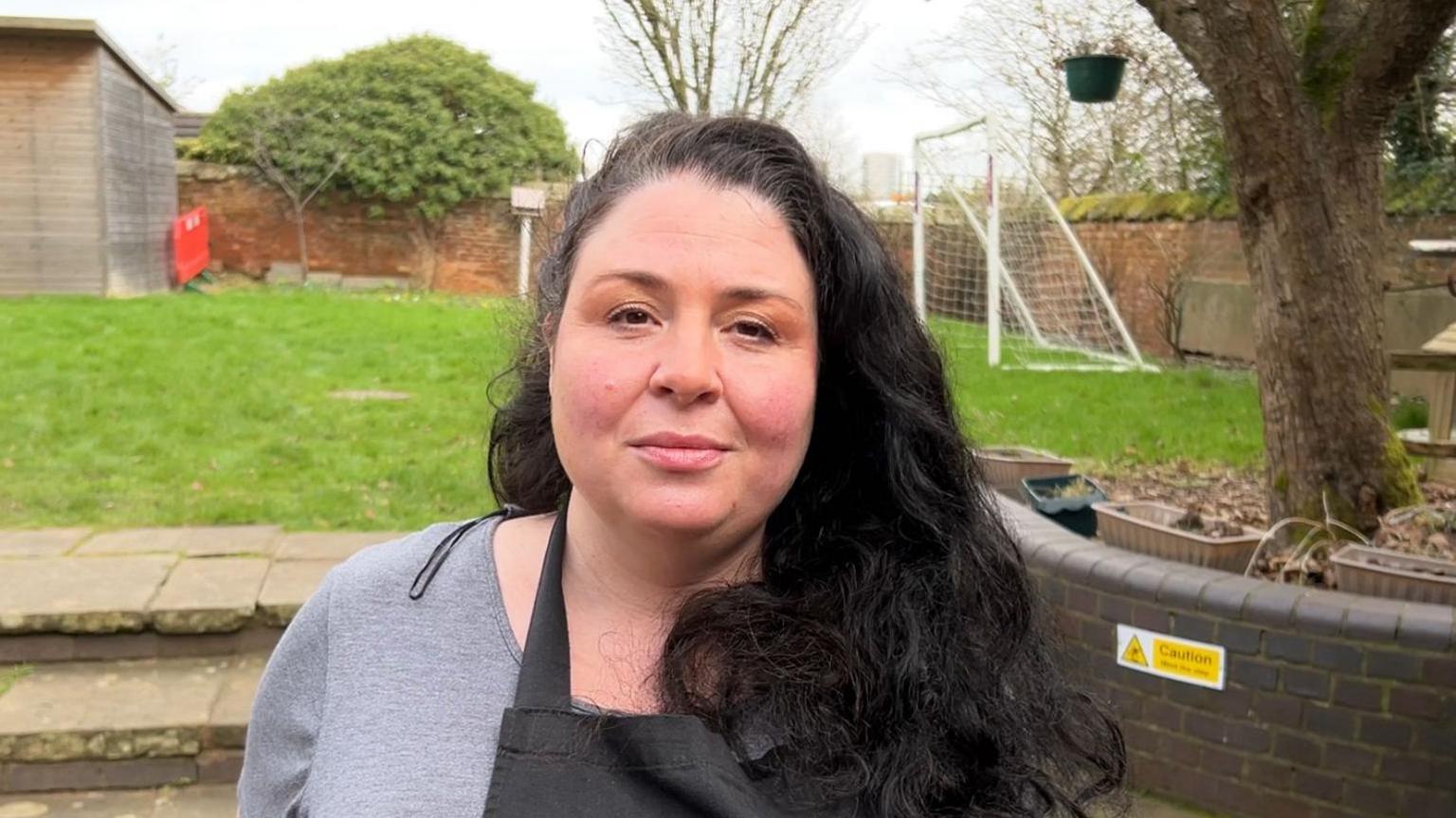
'I don’t know a single person in my life at the moment that isn’t feeling the pinch' says Kirsty Palmer a volunteer
“It’s not just food people benefit from but referrals and domestic violence support,” said Kirsty Palmer.
She volunteers in the community centre’s kitchen and cooks food for dozens of residents each week, after experiencing mental health issues and having faced redundancy.
“My partner works, so 21% (council tax increase over 2 years) is going to kill us," Ms Palmer explained.
"We have children and older relatives to look after. It’s really harsh, particularly with rising bills."
She added: “I don’t know a single person in my life at the moment that isn’t feeling the pinch. And it’s not a pinch anymore, it’s hands around the neck time.”
The council has said the regeneration of Druids Heath continues to progress and residents and stakeholders have been urged to offer feedback on a draft community charter.
It announced plans to update those living on the estate during the spring.
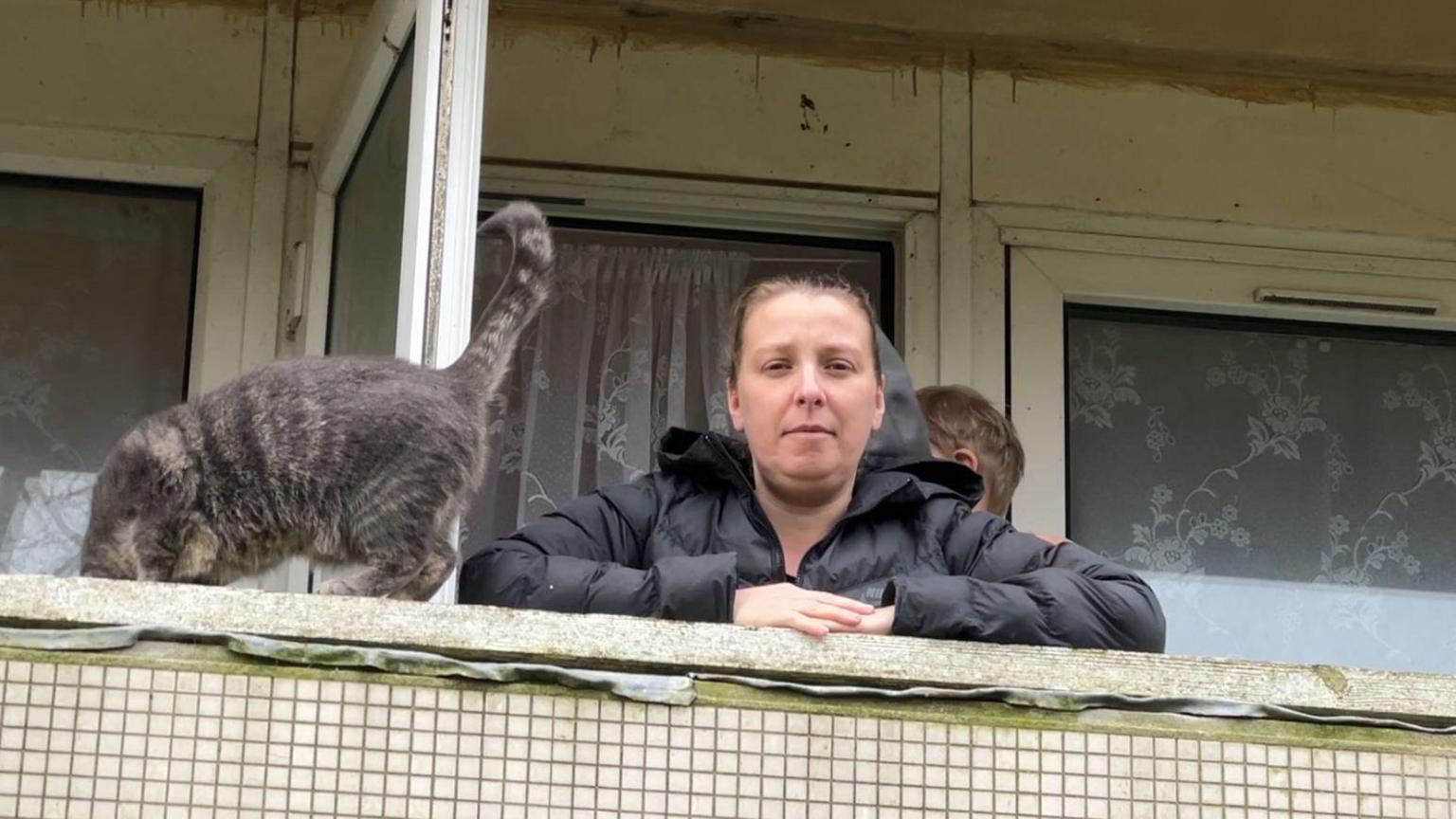
Louise O’Toole says she had complained to the council about mould and overcrowding
BBC Midlands Today met Louise O’Toole who is living in temporary accommodation, a one-bed council flat in a tower block.
While she awaits a move and bids for properties, she says she has complained to the city council about mould and overcrowding – it is also home to her two sons, aged two and 17. Her 16-year-old daughter is about to move in too.
She receives Universal Credit which she hopes will lessen the impact of council tax rises and a rent increase of 7.7%.
Speaking about her family’s quality of life brought her to tears.
“Come and live a day in my life in this property and then see your child go to hospital with asthma and then bring them back here where he’s going to suffer and suffer. It’s just not fair.”
Housing Register's 23,000 households
Birmingham City Council said the authority followed guidelines on the number of people in a household and the bedrooms needed.
They added: "We are very sorry to hear about the housing challenges faced by Louise O'Toole and her family. And we know many people across the city are in difficult situations like them.
"There are currently over 23,000 households on the Housing Register in Birmingham – and that accommodation shortage severely restricts the options we can offer to people in need."
Some say Druids Heath is Birmingham's forgotten estate. But people there are not prepared to forget the promises they have been made by a council in turmoil.
Follow BBC West Midlands on Facebook, external, X,, external and Instagram, external, Send your story ideas to: newsonline.westmidlands@bbc.co.uk
Get in touch
Are you affected by issues covered in this story?
Related topics
- Published19 February 2024
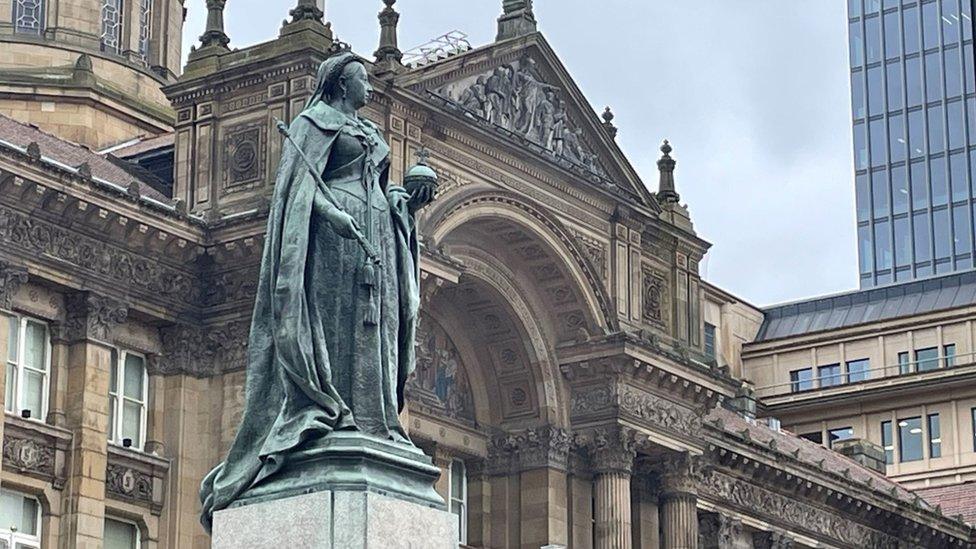
- Published28 February 2024

- Published27 February 2024

- Published20 February 2024
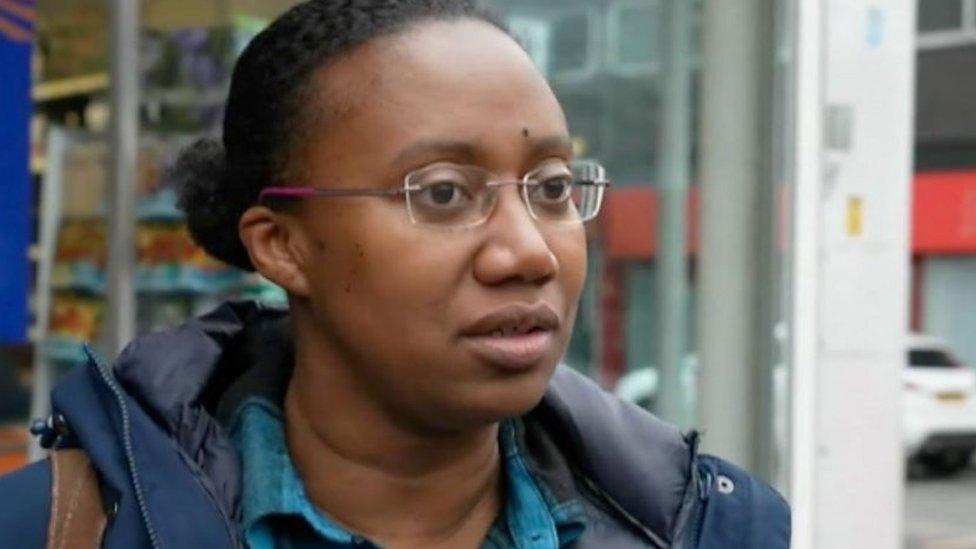
- Published16 January 2024

- Published10 October 2023
